Find Help
More Items From Ergsy search
-
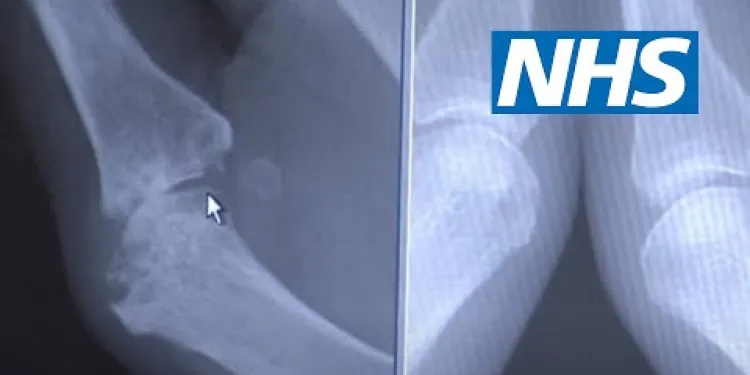
Rheumatoid arthritis | NHS
Relevance: 100%
-
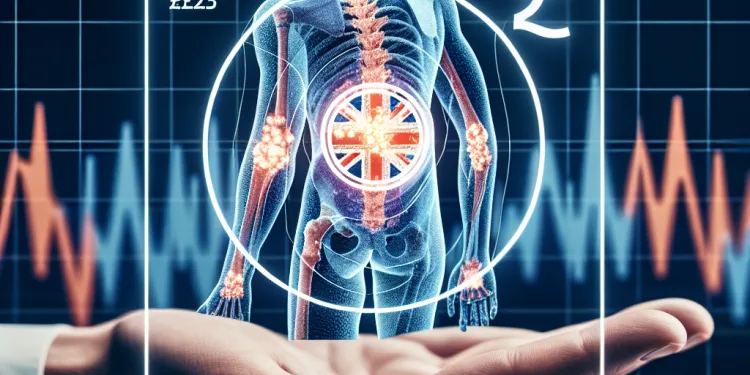
Can chiropractic care help with arthritis?
Relevance: 51%
-

Reactive arthritis
Relevance: 48%
-
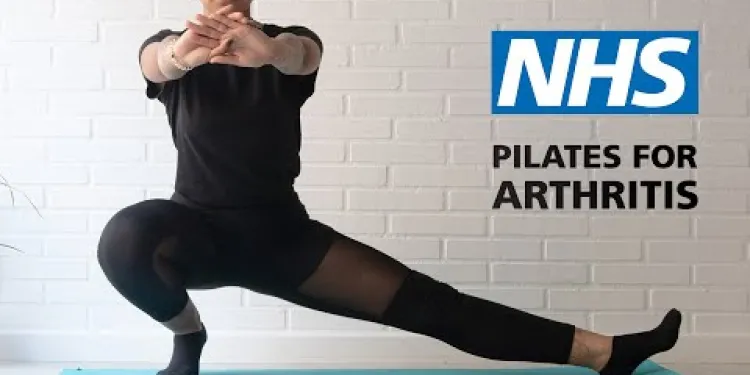
Pilates for Arthritis | NHS
Relevance: 48%
-
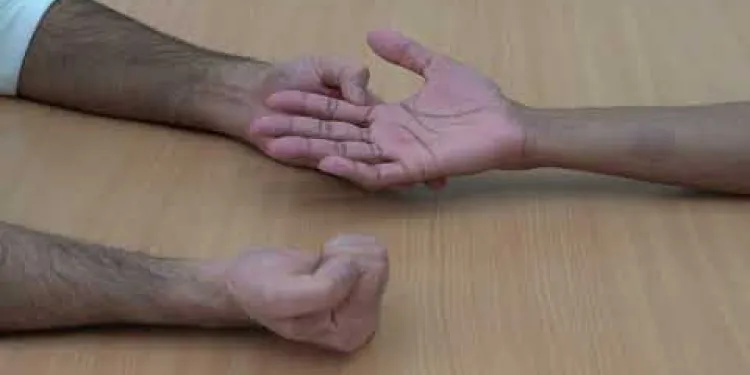
Trigger Finger exam
Relevance: 24%
-

Osteoarthritis of the Hip
Relevance: 21%
-
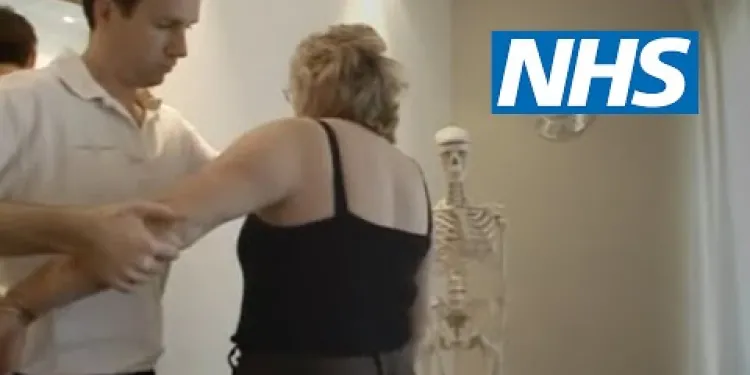
Shoulder pain | NHS
Relevance: 21%
-
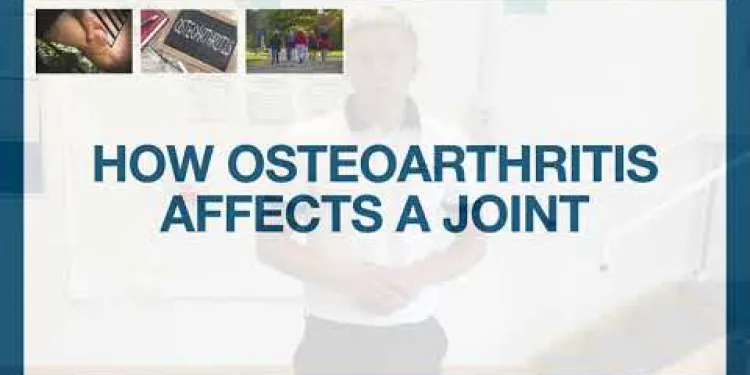
Part One: Understanding Osteoarthritis- MSK Physiotherapy
Relevance: 20%
-

What is Ibuprofen?
Relevance: 18%
-
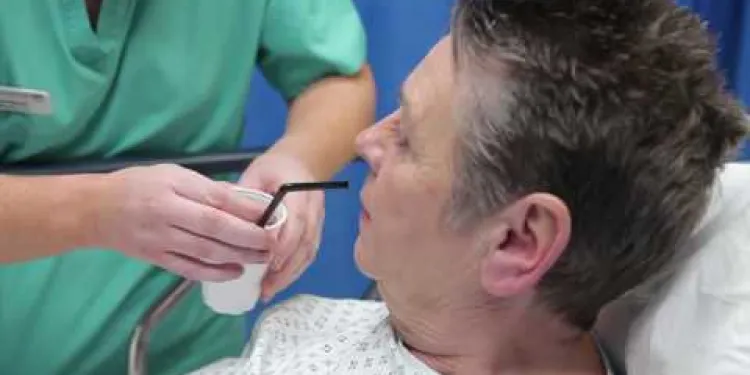
Hip replacement
Relevance: 18%
-

Are there any long-term effects of Chikungunya infection?
Relevance: 18%
-

What is vasculitic neuropathy?
Relevance: 17%
-

Total Knee Replacement
Relevance: 17%
-

What causes Carpal Tunnel Syndrome?
Relevance: 16%
-
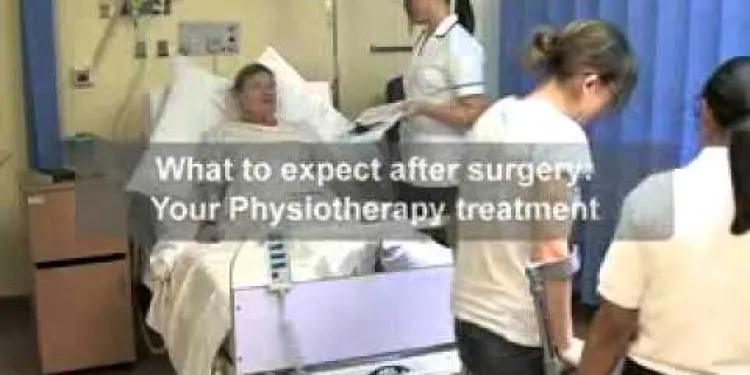
Total hip replacement
Relevance: 16%
-
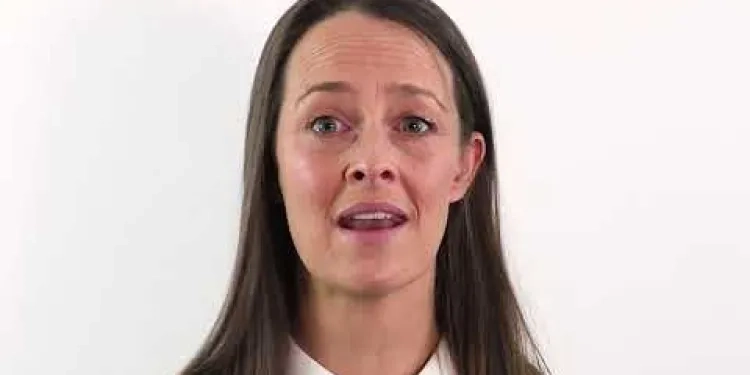
Carpal Tunnel Syndrome
Relevance: 16%
-
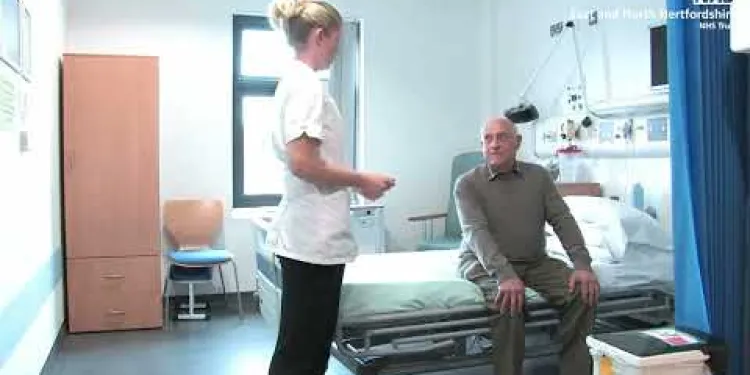
A journey to hip surgery
Relevance: 16%
-

Total Hip Replacement
Relevance: 15%
-

What is a hip replacement?
Relevance: 15%
-
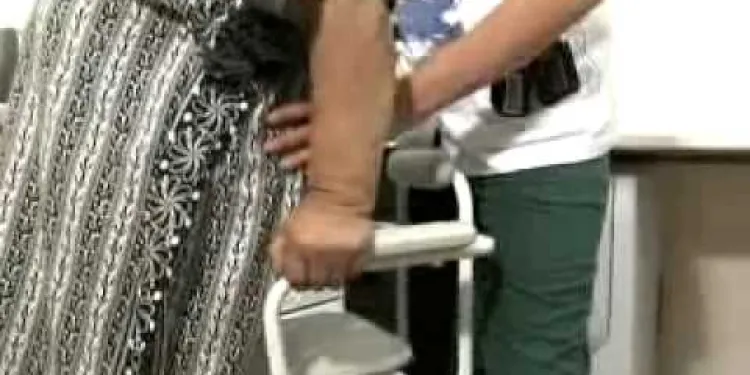
Total knee replacement
Relevance: 15%
-

How long do Chikungunya symptoms last?
Relevance: 14%
-
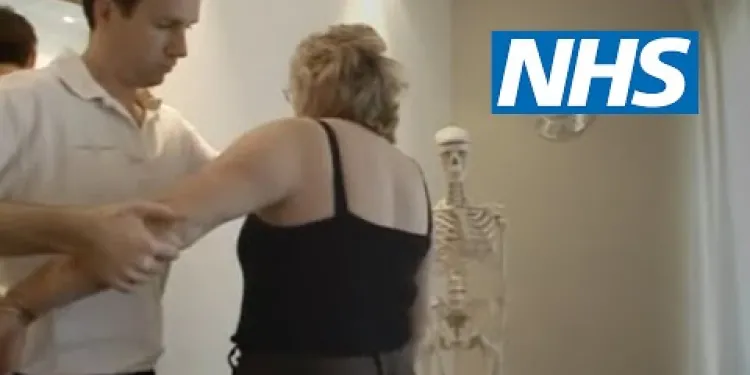
Shoulder pain | NHS
Relevance: 14%
-
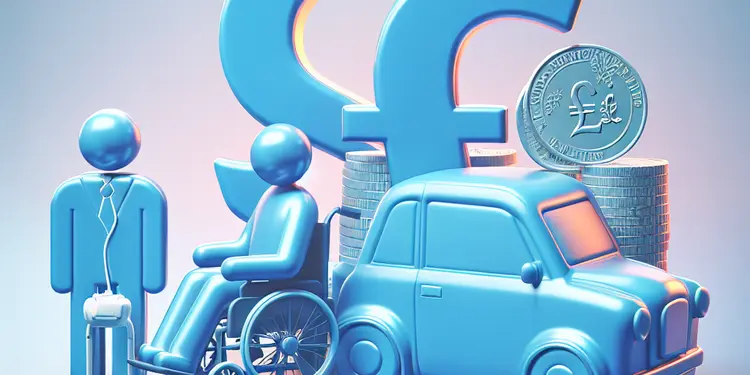
What role do chronic conditions play in driving risks for seniors?
Relevance: 14%
-

What is Carpal Tunnel Syndrome (CTS)?
Relevance: 13%
-
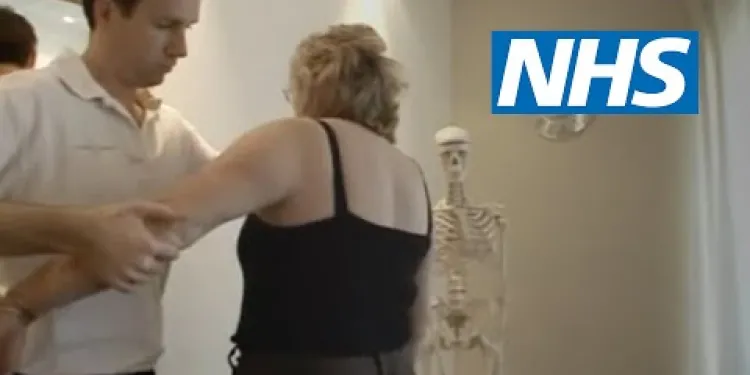
Shoulder pain | NHS
Relevance: 11%
-

How is hypotony diagnosed?
Relevance: 11%
-
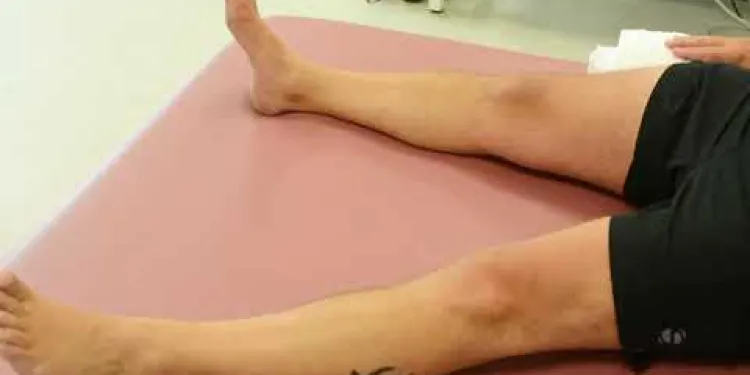
Joint School - Hip Exercises
Relevance: 11%
-
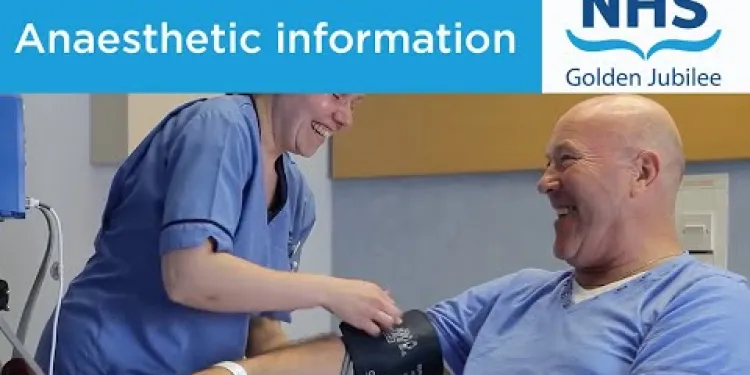
Knee replacement
Relevance: 11%
-

Can I work or continue sports activities if I have Carpal Tunnel Syndrome?
Relevance: 11%
-
Can aspirin interact with other medications?
Relevance: 11%
-

Can Ibuprofen be used to reduce inflammation?
Relevance: 11%
-
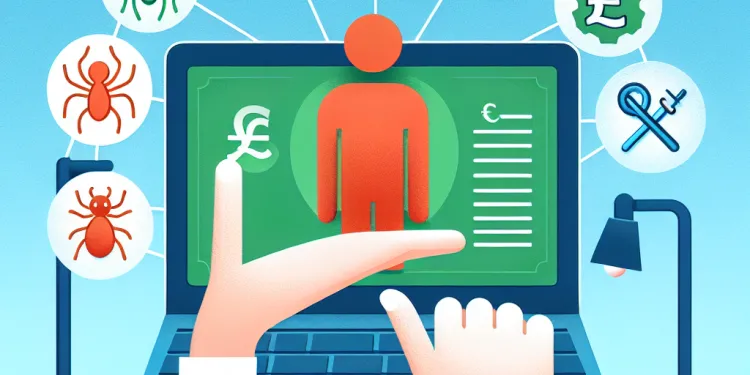
What are common symptoms of Lyme disease?
Relevance: 11%
-

What is Paracetamol?
Relevance: 11%
-

Does Paracetamol reduce inflammation?
Relevance: 10%
-

How long do hip replacement implants last?
Relevance: 10%
-

Are there specific exercises that can help with Carpal Tunnel Syndrome?
Relevance: 10%
-

What is Cushing's syndrome?
Relevance: 10%
-

What is a common use of paracetamol?
Relevance: 10%
-

What are the potential benefits of CBD?
Relevance: 10%
-

What are the uses of cannabis extract?
Relevance: 10%
Understanding Rheumatoid Arthritis
What is Rheumatoid Arthritis?
Rheumatoid arthritis (RA) is a chronic, progressive, and disabling autoimmune disease that primarily affects the joints. It causes inflammation, pain, and swelling, leading to potential joint damage and deformities if not adequately managed. Unlike osteoarthritis, which is a result of wear and tear, RA involves the immune system attacking healthy joint tissue.
Symptoms of Rheumatoid Arthritis
The symptoms of RA can vary from person to person but commonly include joint pain, stiffness (especially in the morning or after periods of inactivity), swelling, and fatigue. These symptoms often affect joints symmetrically, meaning the same joints on both sides of the body may be affected. Other signs may include loss of appetite, fever, and general malaise.
Diagnosis of Rheumatoid Arthritis
Early diagnosis of RA is crucial for effective management. Healthcare providers typically use a combination of patient history, physical examinations, blood tests, and imaging studies to diagnose the condition. Blood tests may check for rheumatoid factor (RF) and anti-cyclic citrullinated peptide (anti-CCP) antibodies, while imaging tests like X-rays, ultrasound, or MRI scans evaluate the extent of joint damage.
Treatment Options
Although there is no cure for RA, several treatments can help manage symptoms and improve quality of life. Treatment usually involves a combination of medication, physiotherapy, and lifestyle changes. Common medications include disease-modifying antirheumatic drugs (DMARDs), biologics, and non-steroidal anti-inflammatory drugs (NSAIDs). Physical therapy helps maintain joint flexibility and muscle strength, while lifestyle changes like regular exercise and a balanced diet support overall health.
Living with Rheumatoid Arthritis
Living with RA can be challenging, but various support mechanisms are available. The NHS provides comprehensive management plans tailored to individual needs. Joining support groups and seeking mental health support can also be beneficial. Patients are encouraged to maintain open communication with healthcare providers to adapt treatment plans as needed.
Support and Resources
The NHS offers a range of resources for people with RA, including online information, self-management workshops, and referral to specialist services. For more detailed information, patients can visit the NHS website, which provides extensive advice on managing RA effectively.
Understanding Rheumatoid Arthritis
What is Rheumatoid Arthritis?
Rheumatoid arthritis (RA) is a disease that makes your joints hurt and swell. It is caused by your body’s immune system accidentally attacking your joints. Unlike other types of arthritis caused by using your joints a lot, RA is different because the immune system is involved.
Symptoms of Rheumatoid Arthritis
RA symptoms include joint pain, stiffness (especially in the morning or when you haven't moved for a while), swelling, and feeling very tired. These problems often happen in the same joints on both sides of your body. Other symptoms might be feeling sick, having a fever, or not wanting to eat.
Diagnosis of Rheumatoid Arthritis
It is important to find out if you have RA as soon as possible to start managing it. Doctors use your health history, physical exams, blood tests, and pictures of your joints to find RA. Blood tests look for things called rheumatoid factor (RF) and anti-CCP antibodies. Pictures like X-rays or MRI scans show how much damage is in the joints.
Treatment Options
There is no cure for RA, but treatments can help you feel better and live well. Treatments include medication, exercise therapy, and changing some lifestyle habits. Medicines can include DMARDs, biologics, and NSAIDs. Exercise therapy helps keep your joints flexible and muscles strong. Eating healthy and moving your body regularly are also very helpful.
Living with Rheumatoid Arthritis
Living with RA can be hard, but there are things that can help. The NHS offers plans for managing RA based on your needs. Joining support groups and talking to a mental health professional may also help. It's important to talk with your healthcare providers about your treatment and any changes needed.
Support and Resources
The NHS has many resources for people with RA, like online info, self-help workshops, and referrals to specialists. You can visit the NHS website for more information on managing RA. They provide helpful advice to make living with RA easier.
Frequently Asked Questions
What is rheumatoid arthritis?
Rheumatoid arthritis is a long-term condition that causes pain, swelling and stiffness in the joints.
What are the symptoms of rheumatoid arthritis?
Common symptoms include joint pain, swelling, and stiffness, especially in the mornings or after periods of inactivity.
What causes rheumatoid arthritis?
The exact cause is unknown, but it is an autoimmune condition where the immune system attacks the joints.
Who is most at risk of developing rheumatoid arthritis?
It can affect anyone, but it is more common in women and usually develops between the ages of 40 and 60.
How is rheumatoid arthritis diagnosed?
Diagnosis typically involves a combination of physical examinations, blood tests, and imaging scans like X-rays or MRIs.
What treatments are available for rheumatoid arthritis?
Treatments include medications to reduce inflammation and pain, physical therapy, and sometimes surgery to repair damaged joints.
Can lifestyle changes help manage rheumatoid arthritis?
Yes, maintaining a healthy weight, staying active, and eating a balanced diet can help manage symptoms.
Are there any medications specifically for rheumatoid arthritis?
Yes, disease-modifying antirheumatic drugs (DMARDs) and biologics are commonly prescribed to slow disease progression.
Is rheumatoid arthritis hereditary?
There is evidence that genetic factors can play a role, but it is not directly inherited.
Can rheumatoid arthritis be cured?
There is no cure for rheumatoid arthritis, but early and effective treatment can help manage the condition and maintain quality of life.
What role does physiotherapy play in treating rheumatoid arthritis?
Physiotherapy can help improve joint function and reduce pain through tailored exercise programs and other therapies.
How important is early diagnosis in rheumatoid arthritis?
Early diagnosis and treatment are crucial to prevent joint damage and improve long-term outcomes.
Can alternative therapies help with rheumatoid arthritis?
Some people find relief with alternative therapies such as acupuncture, but these should complement, not replace, conventional treatment.
What should I do if I suspect I have rheumatoid arthritis?
If you suspect you have rheumatoid arthritis, it is important to see your GP as soon as possible for a proper diagnosis and treatment plan.
How does rheumatoid arthritis differ from osteoarthritis?
Rheumatoid arthritis is an autoimmune condition causing inflammation in the joints, whereas osteoarthritis is a degenerative joint disease caused by wear and tear.
What is rheumatoid arthritis?
Rheumatoid arthritis is when joints in your body get sore and swollen. Joints help us move different parts of our body. This is an illness that can make it hard to move and can hurt.
Here are some ways to help:
- Use simple words when talking about how you feel.
- Ask family, friends, or a doctor to help explain things.
- Look at pictures or videos about rheumatoid arthritis to understand better.
Rheumatoid arthritis is a problem that lasts a long time. It makes your joints hurt, swell up, and feel stiff.
What are the signs of rheumatoid arthritis?
Rheumatoid arthritis is a disease that hurts your joints. Here are some signs to look for:
- Pain in your joints.
- Red and swollen joints.
- Your joints feel warm.
- Stiffness, especially in the morning.
- Feeling very tired.
If you have any of these signs, talk to a doctor. It can help to use pictures and videos to understand more.
Some common signs are:
- Your joints might hurt.
- Your joints might get swollen.
- Your joints might feel stiff, especially in the morning or when you haven't moved for a while.
What causes rheumatoid arthritis?
Rheumatoid arthritis is a disease that makes your joints hurt and swell. We don't know exactly why it happens, but here are some things that might cause it:
- Body Fight Cells: The body's defense, called the immune system, sometimes attacks healthy parts like joints by mistake.
- Family: If someone in your family has it, you might get it too.
- Smoking: People who smoke are more likely to get it.
- Gender: It is more common in women.
What can help:
- Talk to a doctor if you feel pain in your joints.
- Talking with others who have the disease can be helpful.
- Exercise can help your joints feel better.
The exact cause is not known. But we do know it happens because the body’s defense system attacks the joints by mistake.
Who can get rheumatoid arthritis the most?
It can happen to anyone, but it happens more often to women. It usually starts when people are 40 to 60 years old.
How do doctors find out if you have rheumatoid arthritis?
Rheumatoid arthritis is a sickness that makes your joints hurt and swell.
Doctors do some tests to find out if you have it:
- Talk about Symptoms: The doctor will ask how you feel.
- Check Your Joints: The doctor will look at your joints. They want to see if they are red, hurt, or swollen.
- Blood Test: A small needle hurts a bit but shows if you have this sickness.
- Images: Pictures like X-rays or scans help doctors see inside your body.
If you think you have rheumatoid arthritis, see a doctor. They help make you feel better.
Tip: Keep a diary of pain. Write down when it hurts. This helps the doctor understand.
Doctors find out what is wrong by doing different things. They might:
- Look at your body to see how it is doing.
- Take a small amount of your blood for a test.
- Use special pictures like X-rays or MRIs to see inside your body.
What treatments can help with rheumatoid arthritis?
Rheumatoid arthritis is a condition that makes your joints hurt and swell. There are ways to help you feel better:
- Medicine: A doctor can give you medicine to help with pain and swelling.
- Exercise: Moving your body can help keep your joints flexible.
- Rest: It's important to get enough sleep and rest your body.
- Healthy Eating: Eating good food can help your body stay strong.
- Physical Therapy: A therapist can show you exercises to help your joints.
If you find it hard to read, you can ask someone to read it to you or use a tool that reads text aloud.
Treatments can help. Medicine can make swelling and pain go away. Exercise can make you stronger. Sometimes, doctors do an operation to fix joints. A joint is where two bones meet, like in your knee or elbow.
Can changing how you live help with rheumatoid arthritis?
Yes, keeping a healthy weight, moving your body, and eating good food can help you feel better.
Is there medicine for rheumatoid arthritis?
Yes, some medicines can help with rheumatoid arthritis. These medicines can make the pain and swelling better.
Talk to a doctor to find out which medicine is best for you. The doctor can help you feel better.
Using pictures, audio books, or asking a helper can make it easier to understand this information.
Yes, doctors often give special medicines called DMARDs and biologics. These help slow down the disease.
Can you inherit rheumatoid arthritis?
Rheumatoid arthritis is a health problem that makes joints hurt and swell. Some people can get it from their family. This means if a parent or grandparent has it, you might get it too. Not everyone in a family will get it, but it's possible.
If you have rheumatoid arthritis in your family, talk to a doctor. They can help you understand more and give advice to keep your joints healthy.
Using picture guides or asking a friend for help can make this easier to understand.
Scientists think that genes can sometimes be a part of it, but you don't get it straight from your parents.
Can rheumatoid arthritis be cured?
Rheumatoid arthritis is a sickness in your joints. It can make your joints hurt and swell up.
Right now, doctors can't make rheumatoid arthritis go away forever. But there are medicines that can help make the pain and swelling better.
Going to a doctor can help you find ways to feel better. They can give you medicine or exercises to help your joints.
If reading is hard, you can use tools like audiobooks or ask someone to read with you. You can also use pictures to help understand better.
There is no way to make rheumatoid arthritis go away completely. But if you start treatment early and follow it well, it can help you feel better and live well.
Here are some tips:
- Work with your doctor to find the best treatment for you.
- Take your medicine like the doctor says.
- Do gentle exercises to keep your joints moving.
- Use tools like hot packs or cold packs to help with pain.
- Put rest and relaxation into your daily routine.
- Eat healthy foods to feel better overall.
Ask for help if you need it, and talk to people who understand.
How does physiotherapy help with rheumatoid arthritis?
When someone has rheumatoid arthritis, their joints can get very sore and stiff. Physiotherapy is a type of treatment that helps make these joints feel better. A physiotherapist is a trained person who shows exercises and movements to help.
Here's how physiotherapy can help:
- Exercises: Special exercises keep the joints moving and strong.
- Massage: Rubbing the muscles can make them relax and hurt less.
- Hot and Cold Packs: Putting warm or cold packs can help reduce pain and swelling.
To make it easier, you can use pictures or videos that show how to do the exercises. Also, ask someone to help you remember the steps, or practice with a friend.
Physiotherapy can help make joints work better and hurt less. It uses special exercises and other treatments just for you.
Why is it important to find out early if you have rheumatoid arthritis?
It is good to know early if you have rheumatoid arthritis. Finding out early can help you feel better faster. Doctors can give you medicine and exercises to help. You can use pictures or watch videos to learn more. Ask someone to help you understand if you need it.
Finding out what's wrong and getting help early is very important. It can stop joint damage and help you feel better over time.
Can different treatments help with rheumatoid arthritis?
Rheumatoid arthritis (RA) is when your joints hurt and get swollen.
Some people try different treatments to feel better. These are called "alternative therapies."
Here are some treatments people try:
- Exercise: Moving your body can make you feel better.
- Massage: Rubbing sore areas can help with pain.
- Hot and Cold Packs: Warm or cold things on your joints can soothe pain.
Always talk to a doctor before trying new things.
You can use tools like picture cards or ask someone to explain to help understand better.
Some people feel better with other kinds of help, like tiny needle therapy called acupuncture. But, it's important to use this along with regular doctor treatments, not instead of them.
What to Do if You Think You Have Rheumatoid Arthritis
If you think you have rheumatoid arthritis, here are some steps you can take:
- Talk to a Doctor: Tell your doctor how you feel. They can help you understand what is happening.
- Write Down Symptoms: Make a list of any pain or stiffness you feel. This can help the doctor know what is wrong.
- Ask for Tests: Your doctor might need to do some tests to check if you have rheumatoid arthritis.
- Use Tools: Use things like a diary to keep track of how you feel each day.
- Get Support: Talk to family or friends. They can help and support you.
Remember, it is important to see a doctor to get the right help.
If you think you might have rheumatoid arthritis, it is important to see your doctor quickly. They can tell you if you have it and help with a treatment plan.
What is different between rheumatoid arthritis and osteoarthritis?
Arthritis is when your joints hurt. Joints are where two bones meet, like your knees or elbows.
There are different kinds of arthritis: rheumatoid arthritis and osteoarthritis.
Rheumatoid arthritis:
- It is when your body's defense system gets confused. It attacks the joints by mistake.
- This can happen at any age, even if you are young.
- Your joints may feel warm, swollen, and hurt a lot.
Osteoarthritis:
- This kind happens because joints get worn out.
- It is more common as people get older.
- Your joints might feel stiff or sore when you move.
If you or someone you know has trouble with these, tools like pictures or talking with a helper can be useful. There are also apps that read text out loud.
Rheumatoid arthritis is when your body's defense system attacks your joints, making them sore and swollen. Osteoarthritis happens when your joints get worn out over time.
Useful Links
This website offers general information and is not a substitute for professional advice.
Always seek guidance from qualified professionals.
If you have any medical concerns or need urgent help, contact a healthcare professional or emergency services immediately.
Some of this content was generated with AI assistance. We’ve done our best to keep it accurate, helpful, and human-friendly.
- Ergsy carfully checks the information in the videos we provide here.
- Videos shown by Youtube after a video has completed, have NOT been reviewed by ERGSY.
- To view, click the arrow in centre of video.
- Most of the videos you find here will have subtitles and/or closed captions available.
- You may need to turn these on, and choose your preferred language.
- Go to the video you'd like to watch.
- If closed captions (CC) are available, settings will be visible on the bottom right of the video player.
- To turn on Captions, click settings .
- To turn off Captions, click settings again.
More Items From Ergsy search
-

Rheumatoid arthritis | NHS
Relevance: 100%
-

Can chiropractic care help with arthritis?
Relevance: 51%
-

Reactive arthritis
Relevance: 48%
-

Pilates for Arthritis | NHS
Relevance: 48%
-

Trigger Finger exam
Relevance: 24%
-

Osteoarthritis of the Hip
Relevance: 21%
-

Shoulder pain | NHS
Relevance: 21%
-

Part One: Understanding Osteoarthritis- MSK Physiotherapy
Relevance: 20%
-

What is Ibuprofen?
Relevance: 18%
-

Hip replacement
Relevance: 18%
-

Are there any long-term effects of Chikungunya infection?
Relevance: 18%
-

What is vasculitic neuropathy?
Relevance: 17%
-

Total Knee Replacement
Relevance: 17%
-

What causes Carpal Tunnel Syndrome?
Relevance: 16%
-

Total hip replacement
Relevance: 16%
-

Carpal Tunnel Syndrome
Relevance: 16%
-

A journey to hip surgery
Relevance: 16%
-

Total Hip Replacement
Relevance: 15%
-

What is a hip replacement?
Relevance: 15%
-

Total knee replacement
Relevance: 15%
-

How long do Chikungunya symptoms last?
Relevance: 14%
-

Shoulder pain | NHS
Relevance: 14%
-

What role do chronic conditions play in driving risks for seniors?
Relevance: 14%
-

What is Carpal Tunnel Syndrome (CTS)?
Relevance: 13%
-

Shoulder pain | NHS
Relevance: 11%
-

How is hypotony diagnosed?
Relevance: 11%
-

Joint School - Hip Exercises
Relevance: 11%
-

Knee replacement
Relevance: 11%
-

Can I work or continue sports activities if I have Carpal Tunnel Syndrome?
Relevance: 11%
-
Can aspirin interact with other medications?
Relevance: 11%
-

Can Ibuprofen be used to reduce inflammation?
Relevance: 11%
-

What are common symptoms of Lyme disease?
Relevance: 11%
-

What is Paracetamol?
Relevance: 11%
-

Does Paracetamol reduce inflammation?
Relevance: 10%
-

How long do hip replacement implants last?
Relevance: 10%
-

Are there specific exercises that can help with Carpal Tunnel Syndrome?
Relevance: 10%
-

What is Cushing's syndrome?
Relevance: 10%
-

What is a common use of paracetamol?
Relevance: 10%
-

What are the potential benefits of CBD?
Relevance: 10%
-

What are the uses of cannabis extract?
Relevance: 10%


